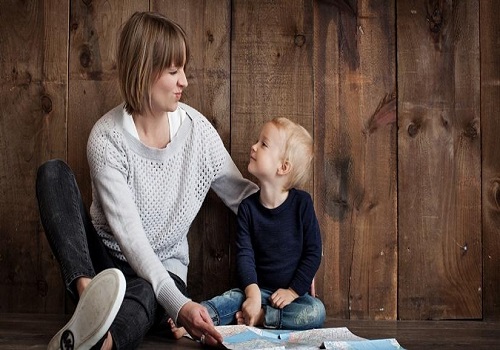Frequent challenges faced by single parents

Follow us Now on Telegram ! Get daily 10 - 12 important updates on Business, Finance and Investment. Join our Telegram Channel
Single parenting refers to a parent who brings up children without the assistance of a partner. There are a variety of reasons why a single parent may raise a child without the assistance of a partner. It's possible that they were formerly involved in a relationship that ended, other parents may choose to raise their children, and in certain situations, a partner may have died.
Children raised by single parents can be just as happy and emotionally healthy as children living with two biological parents. Whether a child has one parent or more, children do well when they have parenting that's nurturing, warm, sensitive, responsive and flexible.
Being a single parent can come with its own set of challenges, depending on whether it's by separation or by choice of adoption. Children can be frightened by the strong emotions that go along with separation. If you're a single parent experiencing separation, it's good to tell your child that both parents love them and that the separation isn't your child's fault.
Frequent Single Parent Challenges
* Negotiating custody and visitation
* Navigating financial issues
* Obtaining health care
* Finding additional role models
* Helping children deal with loss
* Helping children understand their family dynamics
* Acquiring support in child care
These challenges can further get complicated by the way the child is responding to his/her unique family experiences. However, these challenges can be navigated through being mindful of some aspects of single parenting:
Don't be too hard on yourself: You might not be able to prepare every meal or keep everything in the house spotless. Being a parent requires you to readjust your priorities. Spending time with your children and taking care of yourself should outweigh other details that might have caused you to stress in the past. Focus instead on what you have and can do to keep your kid happy and healthy. The value of spending time with your child cannot be replaced by toys, clothes, or technology.
Don't focus on the negative: If your child does have contact with his or her other parent, you shouldn't use them to deliver messages. You also should not criticize or complain about your ex-spouse or partner in front of them. Don't focus on what "could have been", the past relationship with your ex, or mistakes that you may have made along the way. Bitterness and anger will only distract you and possibly model unhealthy reactions for your child. And rather than sharing negative stereotypes, find positive role models for your child for the gender of the missing or absent parent.
Communicate and be Consistent: Routines will provide stability for your child and traditions will give you both tasks and events to look forward to throughout the year. If your child has lost the other parent to death, or if the other parent chose not to be involved in your child's life, they may fear abandonment. Allow them to feel comfortable expressing their own thoughts and feelings about family issues and non-family issues. It might be challenging to answer difficult questions, but open communications will strengthen your relationship. To demonstrate to your child that you won't hide from tough questions or sweep them under the rug.
Take care of yourself: Pay careful attention to how you care for and neglect your mental, physical, and emotional health. Whether it's finding time for a hobby or continuing your education, finding even just a few minutes a day to work on your own dreams and wants will improve your life which keeps you motivated, as motivated people are happier people, and in turn better parents.
Seek out enough reliable help: The most effective single parents make use of their support networks. If you isolate yourself and try to do everything on your own, you might feel overwhelmed. Involve friends, family members, and other members of the community in your life and your child's life. Encourage your child to form strong bonds with the other members of his or her family, peers, teachers, coaches and mentors.
Single parenthood may have its unique challenges, but with an open mind and open arms to let others love you and your child, amazing things can happen. What steps can you take today to support your child and build a thriving single-parent family?












 320-x-100_uti_gold.jpg" alt="Advertisement">
320-x-100_uti_gold.jpg" alt="Advertisement">












